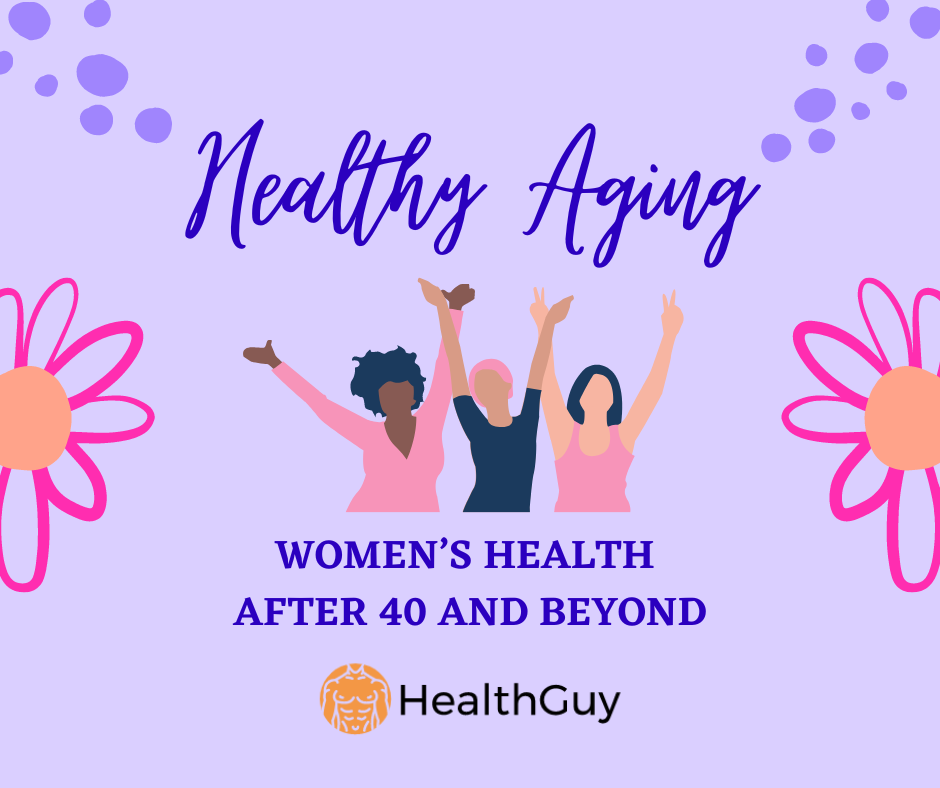
Healthy Aging: Women’s Health After 40 and Beyond
As women age, various physical, psychological, and social changes occur. Some common biological changes include menopause, a decline in bone density, and an increase in the risk of certain diseases such as cardiovascular disease and osteoporosis. Hormonal changes can also lead to mood swings, hot flashes, and sleep disturbances.
In terms of psychology, ageing can bring feelings of loss, such as the loss of youth, independence, and loved ones. It can also lead to feelings of anxiety and depression. Social changes, such as retirement and decreased social support, can also contribute to feelings of loneliness and isolation.
Ageing in women after 40 can result in various physical and hormonal changes, such as menopause, a decrease in bone density, and a slower metabolism. The skin may become less elastic and wrinkles may appear. Mental changes, such as memory lapses, may also occur. It is important for women in this age group to maintain a healthy lifestyle, including regular exercise and a balanced diet, to help mitigate some of these changes and promote overall well-being. Consult a doctor for personalized advice and recommendations.
However, ageing can also bring positive experiences and opportunities for growth. Many women report increased self-confidence and a greater sense of self-awareness. They may also experience closer relationships with family and friends and a greater appreciation for life’s simple pleasures.
As women age, there are several health concerns that become increasingly common. Here are some statistics to consider:
- Menopause: Around the age of 51, the majority of women will enter menopause, which marks the end of their reproductive years.
- Bone health: After menopause, women’s risk of osteoporosis increases, making them more prone to fractures. Approximately 55% of women over the age of 50 will experience an osteoporosis-related fracture.
- Heart disease: After menopause, women’s risk of heart disease increases and becomes the leading cause of death among women over the age of 40.
- Breast cancer: Women over the age of 40 have a higher risk of developing breast cancer, with most cases being diagnosed in women over the age of 50.
- Chronic conditions: The incidence of chronic conditions such as diabetes, arthritis, and high blood pressure increases with age.
It’s important for women over 40 to prioritize their health and to seek regular medical care to help prevent and manage these and other health concerns.
Women’s health after the age of 40 is a crucial time, as the body begins to experience changes and declines in certain areas. However, with proper care and attention, women can maintain good health and prevent many age-related conditions.
To promote healthy ageing, here are some important steps women can take to maintain their health after age 40:
- Get regular check-ups: Women over 40 should have regular check-ups with their healthcare provider, including gynaecological exams, mammograms, and pap smears.
- Exercise regularly: Regular exercise is crucial for maintaining overall health and reducing the risk of various chronic conditions, such as heart disease, diabetes, and osteoporosis.
- Eat a healthy diet: A balanced diet that is rich in fruits, vegetables, whole grains, and lean proteins can help improve overall health and reduce the risk of chronic diseases.
- Maintain a healthy weight: Excess weight can increase the risk of various health problems, including heart disease, type 2 diabetes, and certain types of cancer.
- Stop smoking: Smoking is a leading cause of heart disease and many types of cancer. Women who smoke should make every effort to quit.
- Limit alcohol consumption: Drinking too much alcohol can increase the risk of liver disease, certain types of cancer, and other health problems.
- Reduce stress: Chronic stress can have negative effects on both physical and mental health. Women should find ways to manage stress, such as through exercise, meditation, or talking to a trusted friend or family member.
- Get enough sleep: Getting adequate sleep is important for maintaining overall health and well-being. Women should aim to get 7-9 hours of sleep each night.
By taking these steps, women can help maintain their health and reduce the risk of various health problems as they age.
In conclusion, women’s health after 40 is a time of both challenges and opportunities. With the right lifestyle choices and medical care, women can maintain good health and prevent many age-related conditions. By staying active and engaged both physically and mentally, women can age with grace and maintain their quality of life as they grow older.
